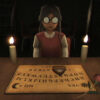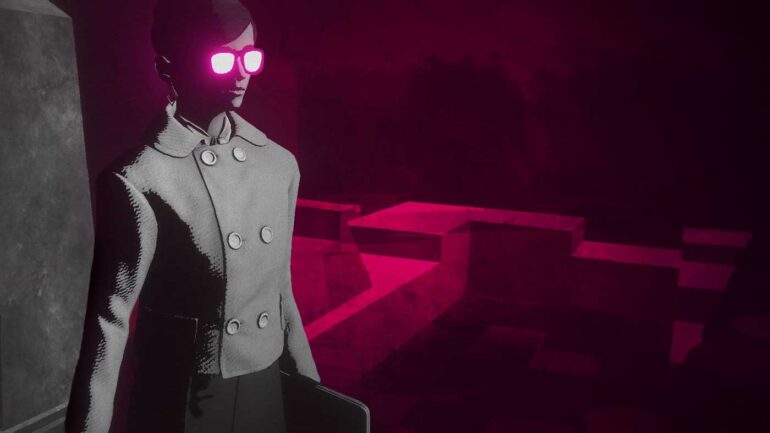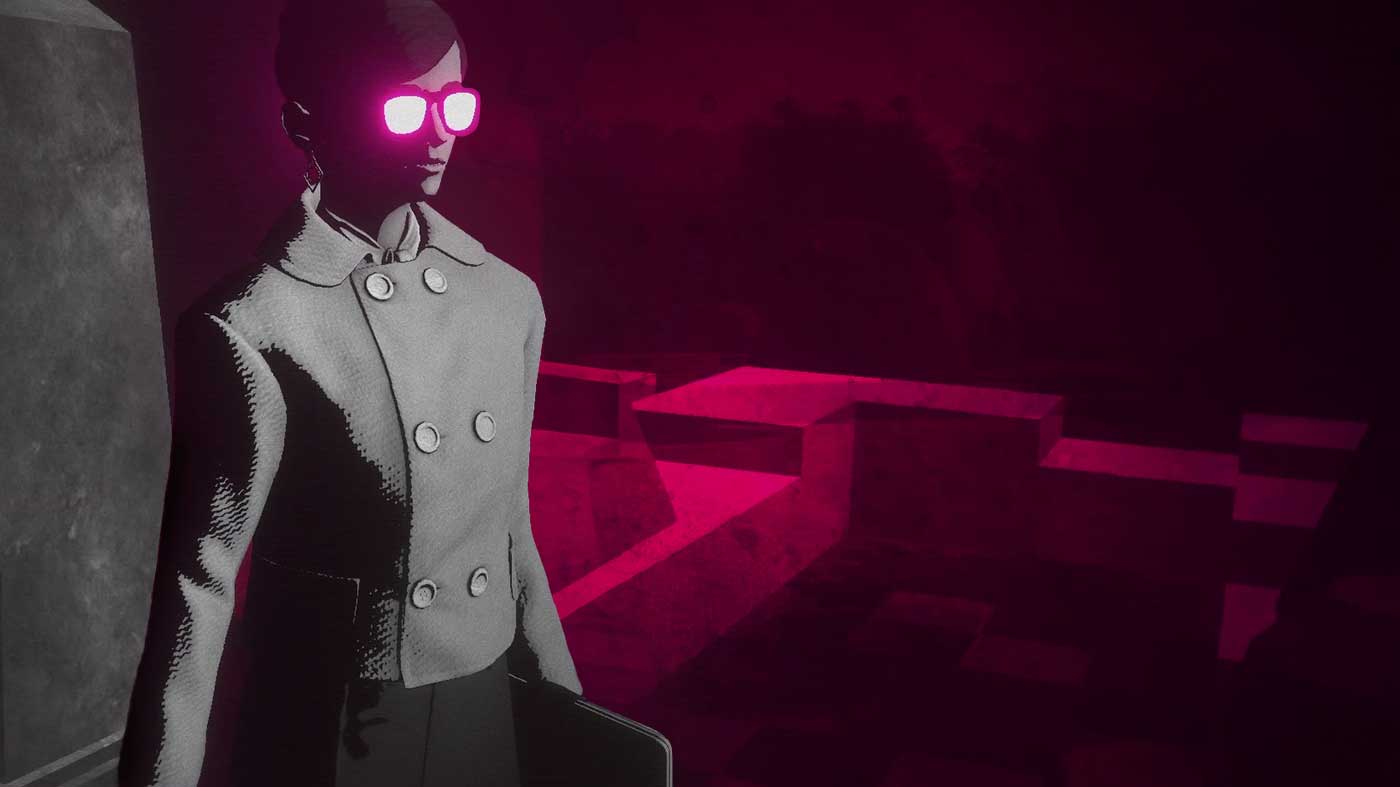If you read the instruction book for Lorelei and the Laser Eyes – an in-game object that can be acquired very early on, but which you might also miss until much later – it advises you to play the game with a pen and paper nearby, in a dark room. I’ve played games before that have made similar suggestions, and often find that I make a few markings before eventually deciding that I don’t really need the book, and that the notes app on my phone will do.
This time, the game was right. If someone unfamiliar with this game got their hands on the fresh notebook I opened for this game, they might think it belonged to a serial killer. It’s page after page of arcane symbols, rough sketches, strange cyphers, repeating numbers and names and symbols in different permutations throughout. I am not sure that you could finish Lorelei and the Laser Eyes without a pen and paper.
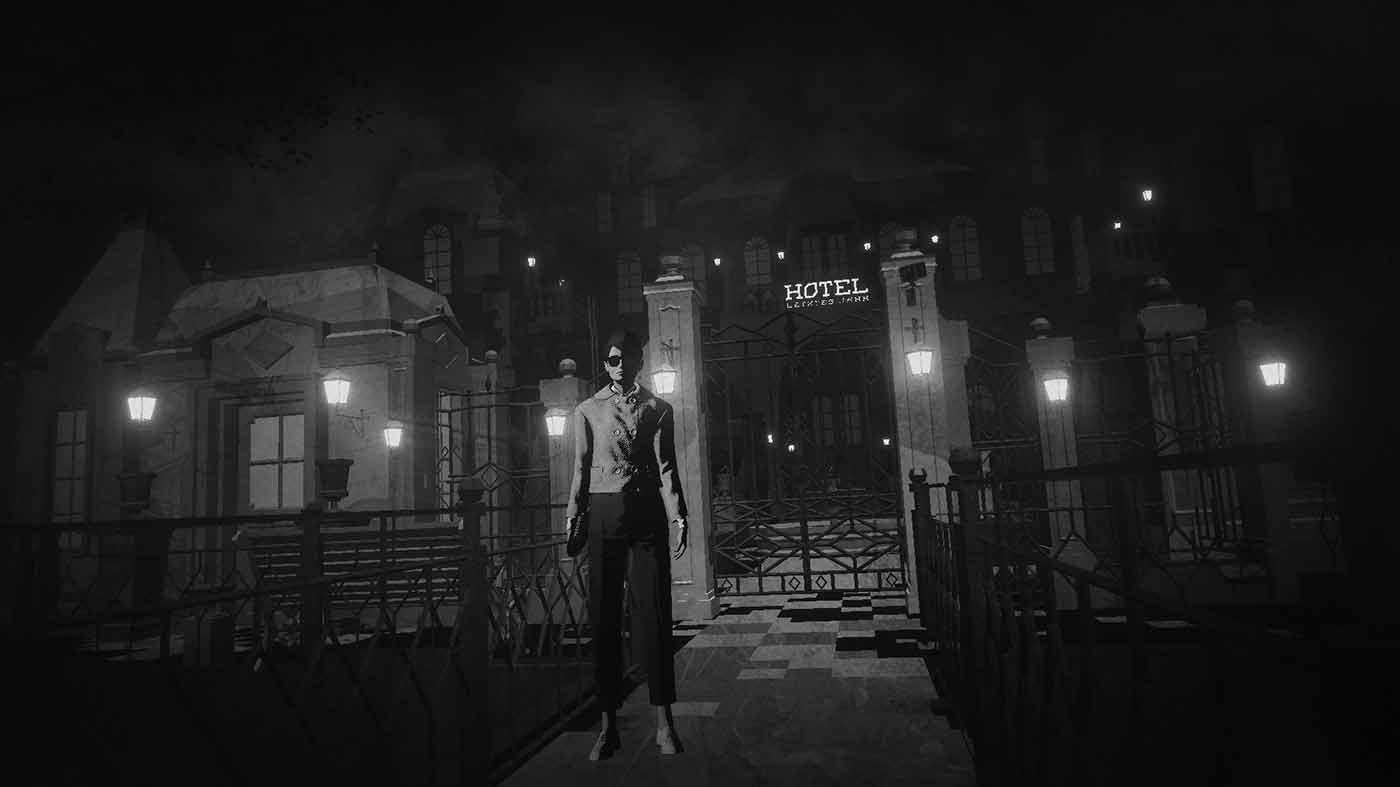
The marketing around Lorelei and the Laser Eyes from developer Simogo (Sayonara Wild Hearts, Year Walk) and publisher Annapurna has been suitably mysterious, enough so that I went into the game not totally knowing what to expect. Truthfully, the concept is pretty straightforward – this is, essentially, a very weird single-player escape room. One big difference is that escape rooms usually take about an hour, whereas Lorelei will take most players over 20 hours to complete. It’s a big, challenging, scary, complicated and absolutely brilliant game.
Simogo is, for my money, one of the most exciting and vital game development teams in the world, a view that Lorelei and the Laser Eyes only further cements. Each game they’ve made has been distinctly different from every other game. While Lorelei and the Laser Eyes shares some similarities with their 2013 masterpiece Device 6, it’s a much larger, and in some ways more traditional, game. The spark of creativity and originality that makes Simogo’s games so special shines as brightly here – as do the eponymous laser eyes. You’ll see.
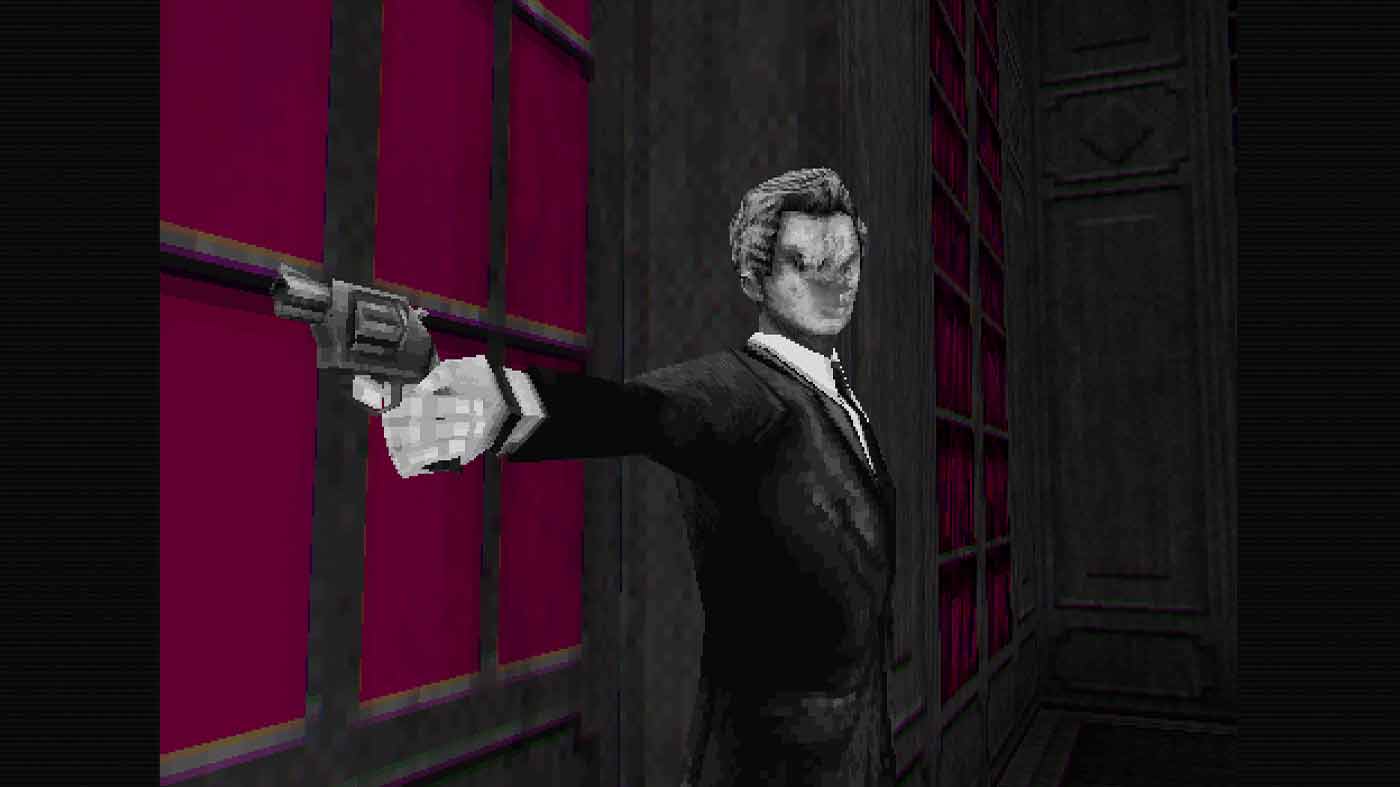
Your enigmatic protagonist – a woman in cool shades – has arrived at the Hotel Letztes Jahr, a mysterious, empty hotel in central Europe, at the invitation of a mysterious man. Armed with a photographic memory that allows her to keep a log of every item and document she finds, the woman sets out to learn more about why she’s there, and to solve the various mysteries housed within the hotel, which is full of locked doors and mysterious objects. Giving away much more than the bare bones of the plot would spoil the experience – and perhaps incorrectly suggest that I have everything straight in my own head – but the deeper you go into the hotel, the more the story reveals itself.
The hotel is chock-full of puzzles, and your goal, ultimately, is to solve all (or nearly all) of them. The game is arranged non-linearly, meaning that you will be pulling at multiple threads at once, flitting between different areas within the hotel to see if some new information you’ve gleaned, some new thread you’ve pulled at, some new item you acquired, will help you with any of the puzzles you have not solved yet. Sometimes you’ll put a pin in something and return many hours later with confidence; some mysteries may fade from your memory until a moment, much later, when you find the first key to their solution.
The only moments I found even slightly frustrating in a way that did not feel intentional were when I realised that I had missed an innocuous, easy-to-miss object in a room I’d been through dozens of times, because it wasn’t clear that something could be interacted with until I walked right up to it. But those moments are few and far between, and they gave me hope in the moments when I felt stuck, knowing that I might be able to stumble into another path forward by accident.
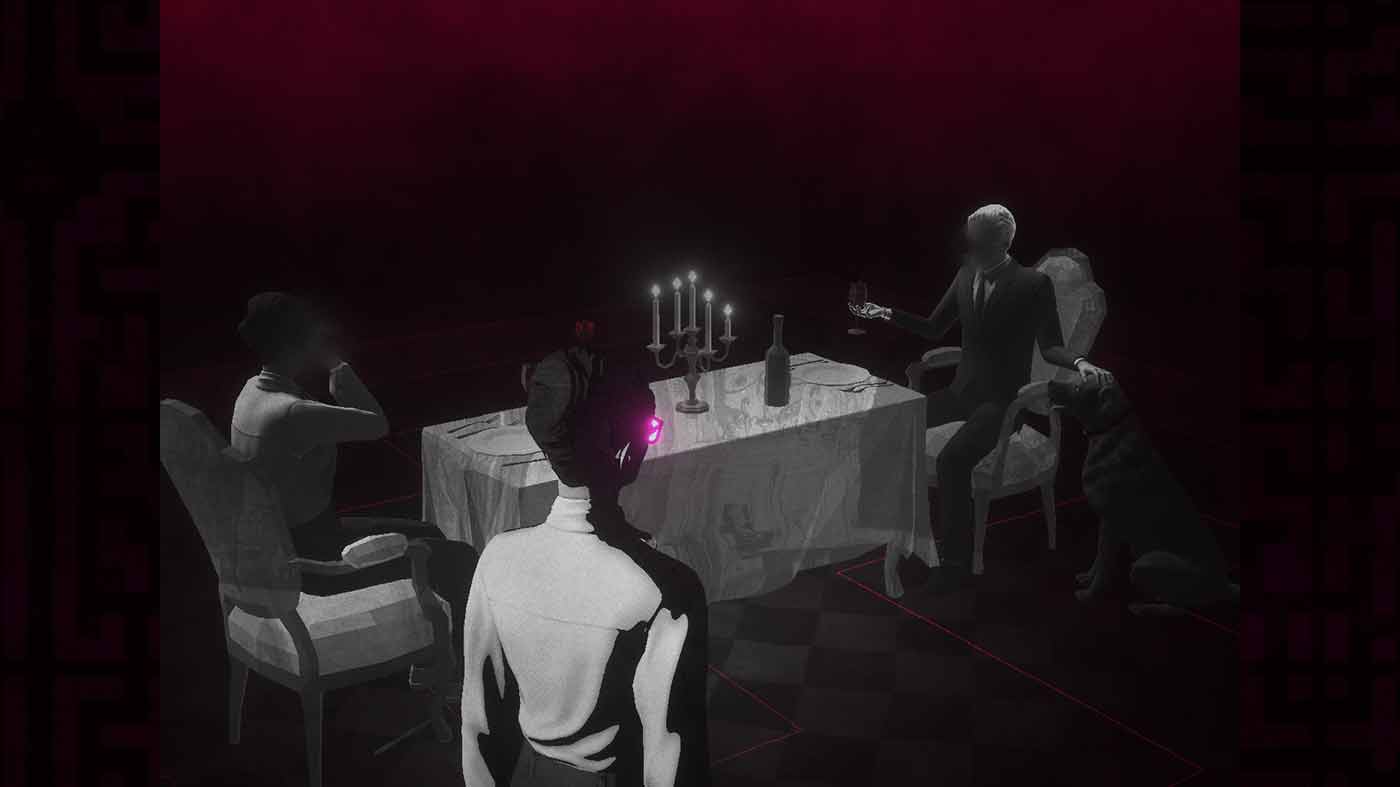
The puzzles range from the straightforward to the arcane. There are some light randomisation elements in the game to ensure that even if you’re using a guide to get through Lorelei, you’ll still need to understand the mechanics of how everything fits together – but using a guide would be robbing yourself of the “ah-ha” moments, and, perhaps more crucially, of getting a feeling for the patterns and vibes that guide so much of the experience. This is a game of immersion, where solutions start to present themselves not just when you find documents outlining certain information, but as you start to notice certain details about the plot come together, certain repetitions that begin to feel meaningful.
I’m being intentionally vague here, but this isn’t something that feels typical to me for this style of game, and I loved it. The whole game is played with movement controls on a single stick and just one button – a cool design flex considering how complicated the game is, but I never quite got out of the habit of trying to press “B” to exit out of menus.
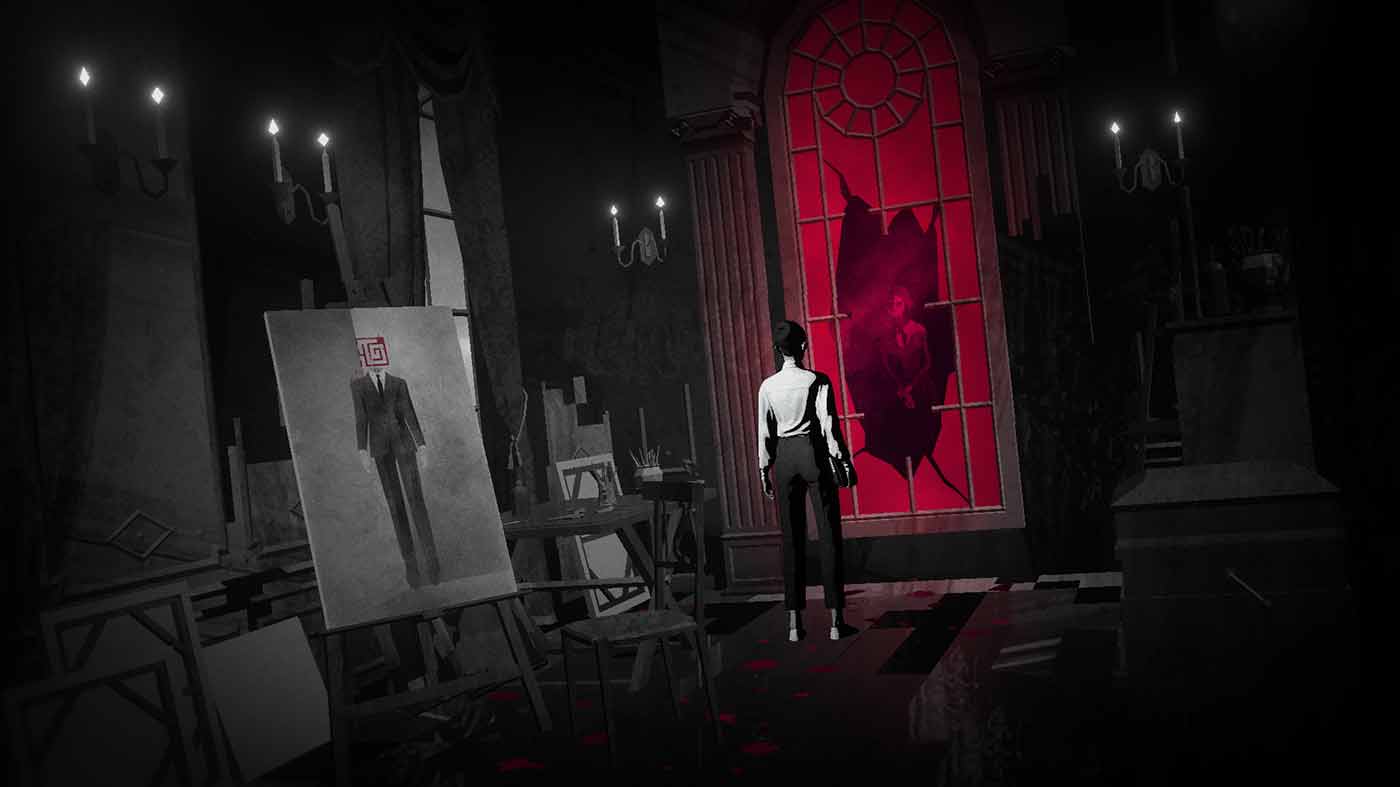
This is also, by at least some definitions of the term, a horror game. The clearest video game inspiration for Lorelei is the Spencer Mansion from Resident Evil, another large building full of puzzles. And like that game, there are potential “game over” death screens in Lorelei, moments where you’re quizzed on your ability to take in details or your ability to comb through collected materials looking for information. It’s not a game of jump-scares, but I felt a constant unease as I explored. The hotel is presented through a glorious black, white and red visual aesthetic, a style that sits at multiple points on the retro/modern scale at once, and which feels extremely cool. Environments are rendered with images projected over them, giving everything a haunting, weird, and very distinctive feeling.
I played the game on Switch, and I dare say it’s one of the best-looking 3D games on the system – and one where the aesthetic feels so deliberate that an upscaled 4K version might have actually diminished it.
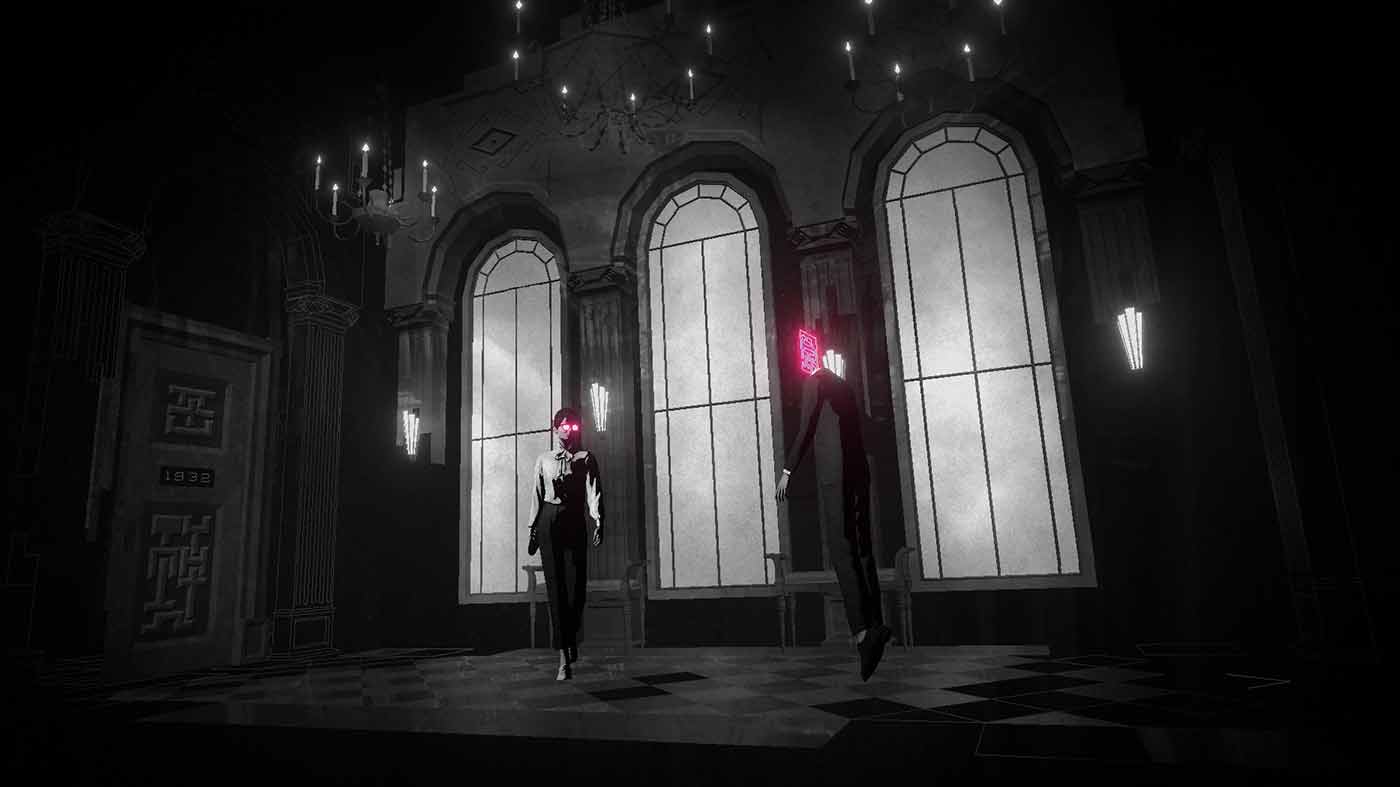
Lorelei and the Laser Eyes repeatedly wowed me, and there are moments and ideas that feel extremely audacious for a puzzle game. There are tributes to past Simogo games, and to the company’s own history, that give the game an interesting metatextual feeling. There are sequences that veer into homage in interesting ways. There were things that happened that I did not expect, that changed the way I played and understood the game. It’s exciting, and a little scary, feeling like just about anything might be around the next corner, what’s behind every locked door, what secrets are hidden behind the obtuse puzzle that has been bugging you for days.
The more I write about Lorelei and the Laser Eyes, the more I realise that I want to tell you nothing about it, aside from this one core thought: this is a brilliant game, and you should absolutely play it. It’s intimidating and overwhelming at first, but you need to give yourself over to it, let it wash over you. It will reward all of your patience and frustration.

